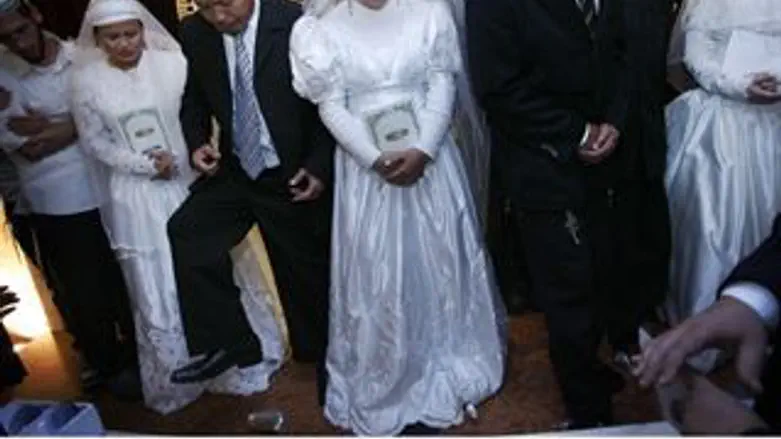
While there are more opportunities and outlets to meet future mates than ever before, the common wisdom – both among young men and women – is that actually getting married is harder than ever. And while that conception is not necessarily based on research, says Shirat Malach, chairperson of the Yashfeh organization, there is something to it. Technology has made it easier to find potential mates, making it possible for them to be more “choosy. They know someone else will come back to them with another possibility, which leads to perhaps less willingness to compromise – especially among the boys,” Malach says, although the phenomenon is not unknown among girls.
Whether or not excessive choice is the reason, Malach believes that her organization has a solution – if not “the” solution. “We work with each applicant individually and help them find the right mate,” she says. “Right now, one out of every 16 people we work with gets married, and we hope – and believe – we can get that figure up to something like one out of every three.”
Yashfeh is a computer matchmaking service – with a personal twist. “Anyone can apply, but before we put someone int the database, we interview them personally,” Malach tells Israel National News. The interviews are conducted by one of about 220 volunteers who work with the program, and cover all the nuances that most people miss in the usual descriptions they find on computer dating sites. “The volunteer – who is also the 'shadchan,' the matchmaker – gets to know their 'client' very well, and is in a good position to make personal recommendations for possible matches,” she says. The information is added to the Yashfeh database (so far, they have about 3,500 clients) and the matchmakers search through the information to find a good match.
It's important to note that only the matchmakers have access to the database; they check the information, speak to the potential matches and explain whom they have in mind, and after both parties agree, they speak on the phone and set up a date. As a result, many of the basic questions – background, education, 'looks,' etc. – are already taken care of in advance. Thus, the first “ring” of possible rejection has been overcome, with the couple now able to concentrate on more practical matters.
For the Yashfeh system to work, clients have to have a very high level of trust in the competence and capabilities of their “shadchan,” and Malach says that instilling that kind of confidence is a priority of the organization. “Not everybody can be a matchmaker,” she says. “We are looking for people who have good communication skills, can show empathy and understanding, and are interested in helping others.” Matchmakers have to go through a training program, and are expected to “handle” 5 to 10 applicants when they begin their work.
Yashfeh, which was established 10 years ago, is now working on projects besides matchmaking, says Malach; they have a staff of counselors who work with couples that have already begun dating, helping them work out issues that may be preventing them from moving on towards marriage. That service, Malach says, is open to anyone, not just couples that Yashfeh helped to meet. And, the group has also begun holding special events, such as conferences and evening for singles; last week, Yashfeh held a conference on building communications skills for individuals involved in helping singles to get together.
The cost for getting enrolled in the program is minimal, and, along with a small stipend from the government and donations, allows Yashfeh to continue operating. “We are in a perpetual budget crisis here,” Malach says, but still she plans to expand and grow. Anyone seeking to join the program is welcome to call the Yashfeh office, at 02-644-8422. “I know it's tough out there,” she says, “but each time I see a couple get together, I become more hopeful. No matter who you are, there's someone out there for you – and we will do our best to help you find them.”